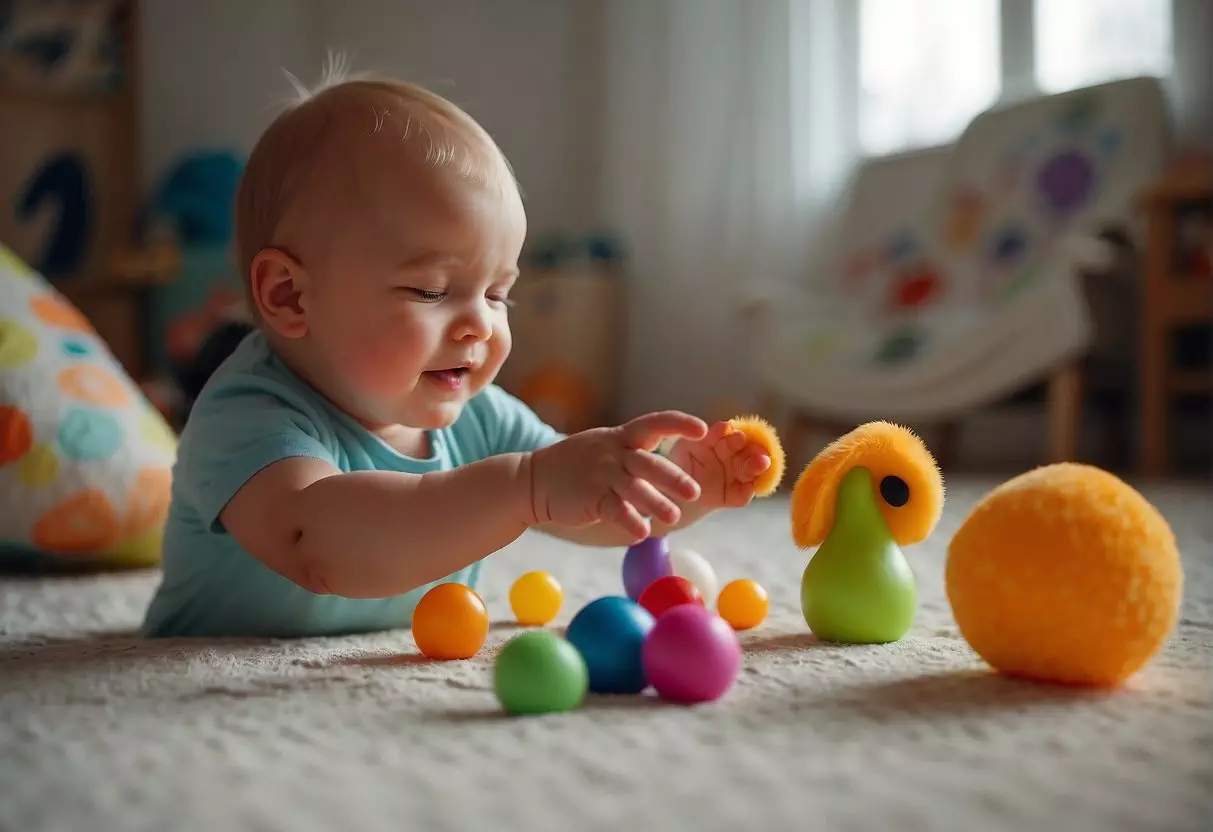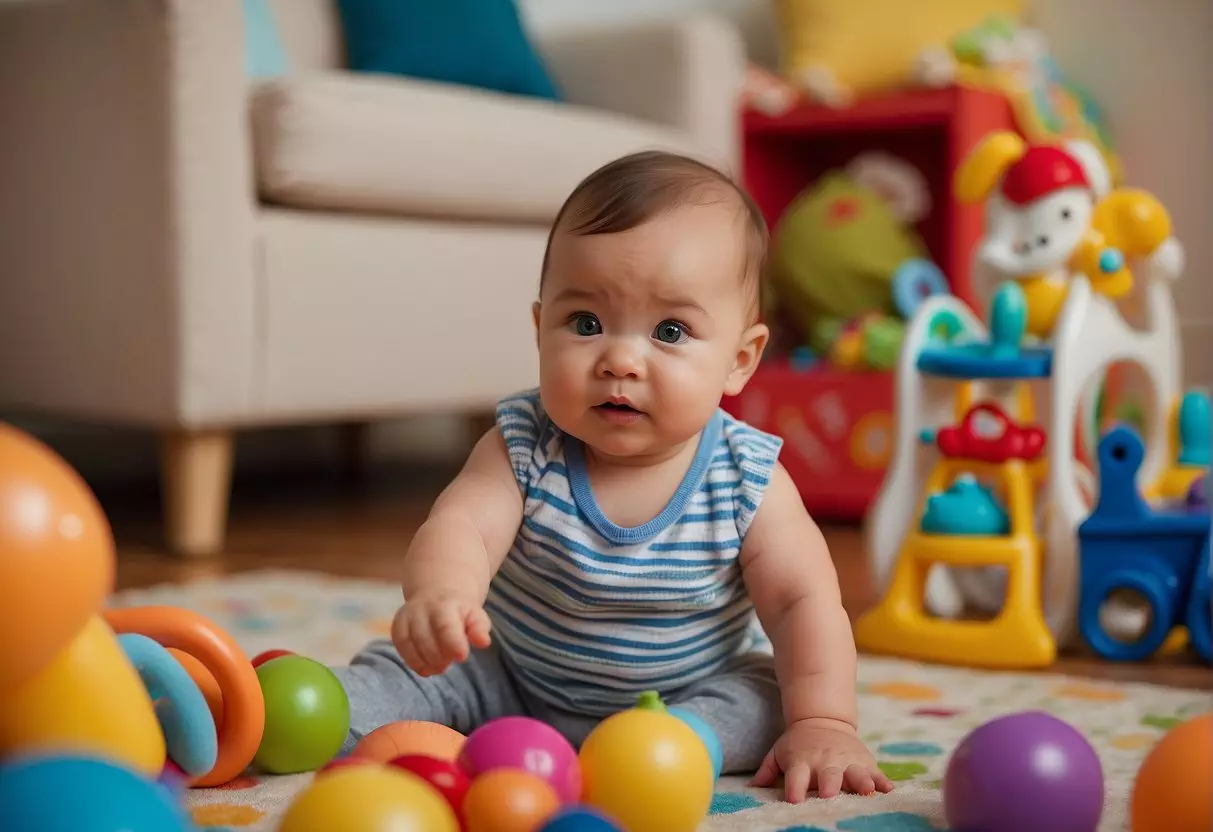Activities for a 10-Month-Old: Fun & Developmental Play Ideas
Engaging your 10-month-old in various activities is an exciting way to support their rapid development. At this stage, your little one is likely becoming more active and showing a keen interest in the world around them. By introducing a mix of stimulating activities, you can help them enhance their cognitive, motor, and sensory skills. From improving hand-eye coordination to fostering problem-solving abilities, the right activities can make learning fun and effective for your growing baby.

As your 10-month-old explores their environment with newfound mobility, it’s important to choose activities that encourage movement and interaction. Simple games like peek-a-boo can aid in understanding object permanence, while sensory play with different textures and colors can stimulate their senses. Even everyday routines can become opportunities for development, as your baby learns through imitation and repetition.
Navigating the wide array of suitable activities for a 10-month-old can be overwhelming, but focusing on their individual interests and abilities can guide you. Whether it’s through musical games that enhance listening skills or stacking cups that teach size differentiation, each activity offers unique benefits. Ensuring your baby’s playtime is both educational and enjoyable will lay a strong foundation for their ongoing growth and discovery.
Table of Contents
Developing Gross Motor Skills
In the journey of your child’s physical development, mastering gross motor skills such as crawling and cruising, and eventually taking those first steps, paves the way for future movement and balance.
Crawling and Cruising
Crawling is one of the primary ways infants explore their environment and strengthen their muscles. To encourage crawling, you can:
- Place toys just out of reach to motivate movement
- Lie on your stomach and engage with your baby at their level
When your little one starts pulling themselves up, they’re beginning to cruise. This means they’ll use furniture or other objects to navigate around the room. Help them by:
- Ensuring the space is safe and baby-proofed
- Placing toys on couches or sturdy objects to invite them to stand and move along the edge
Standing and Walking First Steps
Standing independently is a significant milestone and requires a lot of balance and strength. To support this:
- Play standing games that require your baby to stand for a short time
- Hold their hands and encourage them to stand, gradually reducing the support
Walking combines all the gross motor skills they’ve been developing, from balance to coordination. Begin walking practice by:
- Assisting with guided walking by holding their hands or using a walking toy
- Celebrating small successes to build confidence and encourage perseverance
Enhancing Fine Motor Skills

To help your 10-month-old develop fine motor skills, you’ll want to introduce activities that encourage small muscle movements in the hands and fingers. Building these skills contributes greatly to your child’s ability to perform more precise actions, such as holding objects between thumb and finger, known as the pincer grasp, and coordinating movements with what they see.
Pincer Grasp and Hand-Eye Coordination
Your little one is learning to pick up small objects using their thumb and forefinger, which is essential for their fine motor development. Try these activities:
- Offer finger foods like soft-cooked carrot sticks or peas during mealtime to promote the pincer grasp.
- Play with toys that require pinching, such pulling apart soft blocks or placing rings on a peg.
Remember, direct interaction with different shapes and textures supports your baby’s hand-eye coordination and sensory perception.
Drawing with Crayons and Stacking Toys
Introducing crayons at this stage can spark your child’s creativity and strengthen their hand dexterity. Give them large, non-toxic crayons and thick paper, and let them create their masterpiece. As they grasp and move the crayon across the paper, they’re refining both their grasp and coordination.
Stacking toys are another great way to enhance fine motor skills and coordination. Encourage your child to stack blocks or cups, which will also boost their problem-solving abilities. Toys that interlink, like large plastic chain links, can also be used for stacking and are easy for little hands to manipulate.
Simple activities like these lay the groundwork for more complex skills down the road, such as writing and self-feeding with utensils. By regularly incorporating these fun tasks into your 10-month-old’s playtime, you’re setting them up for success.
Fostering Cognitive and Sensory Experiences
Engaging your 10-month-old in activities that promote cognitive development and enrich sensory experiences is crucial. Through structured play, you can support their burgeoning skills in a manner that’s both enjoyable and beneficial.
Exploring Sensory Bins and Water Tables
Introduce your little one to the wonders of sensory play by setting up a sensory bin or water table. This tactile exploration is more than just fun; it’s a pathway to cognitive development. Fill the bin with a variety of items that differ in texture, size, and color. Add scoops and containers for pouring to enhance the experience. The simple act of reaching for, grasping, and manipulating different objects helps refine your baby’s motor skills and introduces basic concepts of cause and effect.
A water table is particularly enthralling for little explorers. Allow your child to experience the splash and flow of water, which isn’t just delightful but also introduces them to liquid properties and movement. The sensory input received from these activities is not only soothing but also critical for their brain development.
Learning Object Permanence with Peekaboo
Playing peekaboo is an iconic game that serves an important role in your child’s cognitive growth, specifically in understanding object permanence. Hide a toy under a blanket and then reveal it, or cover your face with your hands and then uncover it to the delight of your baby. This seemingly simple activity does wonders for your child’s cognitive development. By repeatedly playing peekaboo in different forms, you’re reinforcing the idea that objects and people continue to exist, even when out of sight. This concept is a fundamental cornerstone of cognitive development in infants.
Encouraging Social and Communication Skills

Developing your 10-month-old’s social and communication skills is vital for their language development. Through interactive reading and singing songs, you can create fun learning experiences that lay the groundwork for these important abilities.
Interactive Reading and Story Time
By reading books to your little one, you’re exposing them to new vocabulary and language structures, fostering their language skills. During story time, point to pictures and explain what each image represents, asking your baby to find different objects on the page. This not only makes reading interactive but also promotes understanding of the relationship between words and images.
Singing Songs and Language Games
Engage in singing simple and repetitive songs with actions, such as “The Itsy Bitsy Spider,” to teach your baby rhythmic patterns and new words. Playing language games, like pat-a-cake, encourages babies to mimic sounds and gestures, enhancing their social skills. Remember to praise their efforts and repeat the sounds they make to show communication is a two-way street.
Promoting Independent Play and Problem-Solving
Encouraging independent play enriches your baby’s problem-solving skills and nurtures their curiosity. It’s important for you to provide the right tools and environment that promote these crucial areas of development during playtime.
Solo Play with Montessori Toys
Montessori toys are designed to be engaging and developmentally appropriate for your child. They encourage exploration and can enhance your 10-month-old’s motor skills. Offer toys like simple wooden blocks or a Montessori ball to promote concentration and self-directed play. Using these toys, your baby can practice grasping, stacking, and sorting, which are fundamental for their cognitive growth.
Solving Simple Puzzles and Shape Sorters
Introducing your baby to puzzles and shape sorters can be a delightful way to build their problem-solving skills. At this age, choose items with large, easy-to-handle pieces and clear color-coded designs. Puzzles with knobs or simple shape-sorting buckets are excellent tools. As they fit the pieces in the correct spots, they learn through trial and error, which is a key part of independent play and cognitive development.
